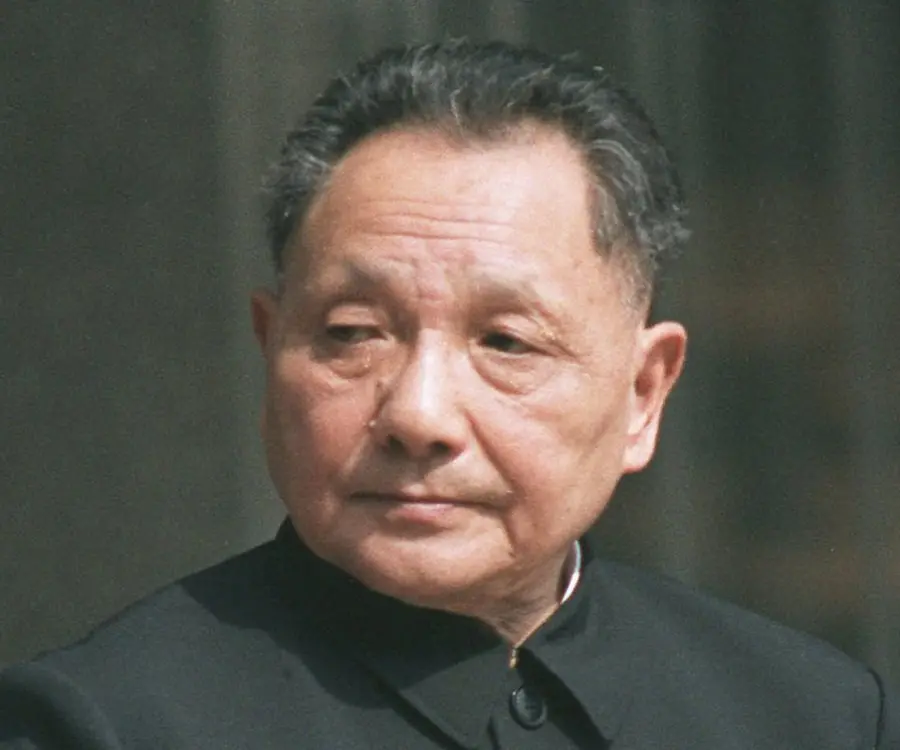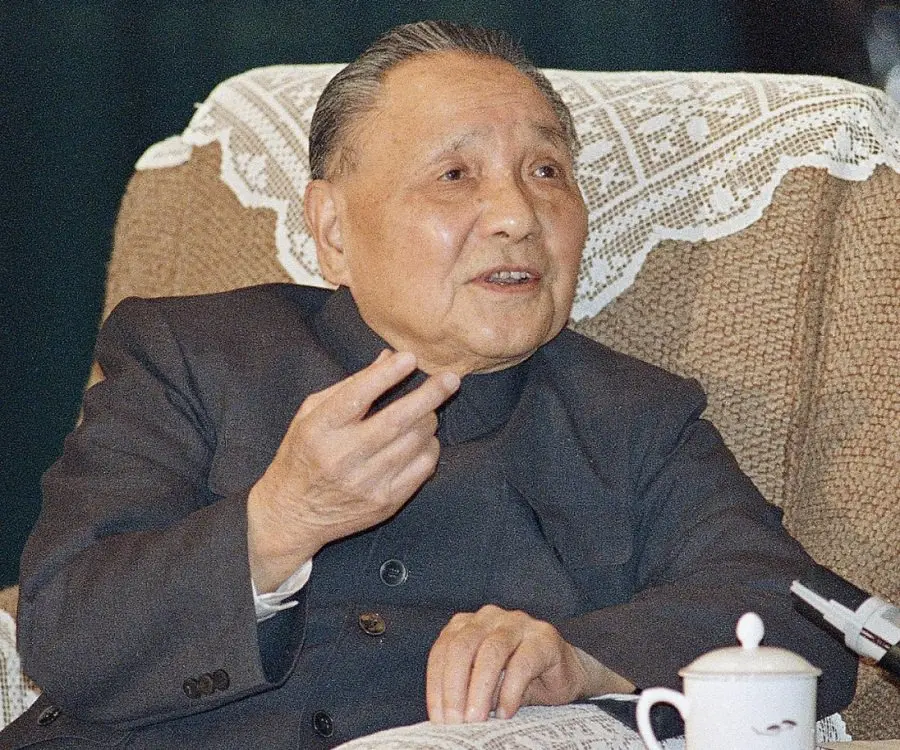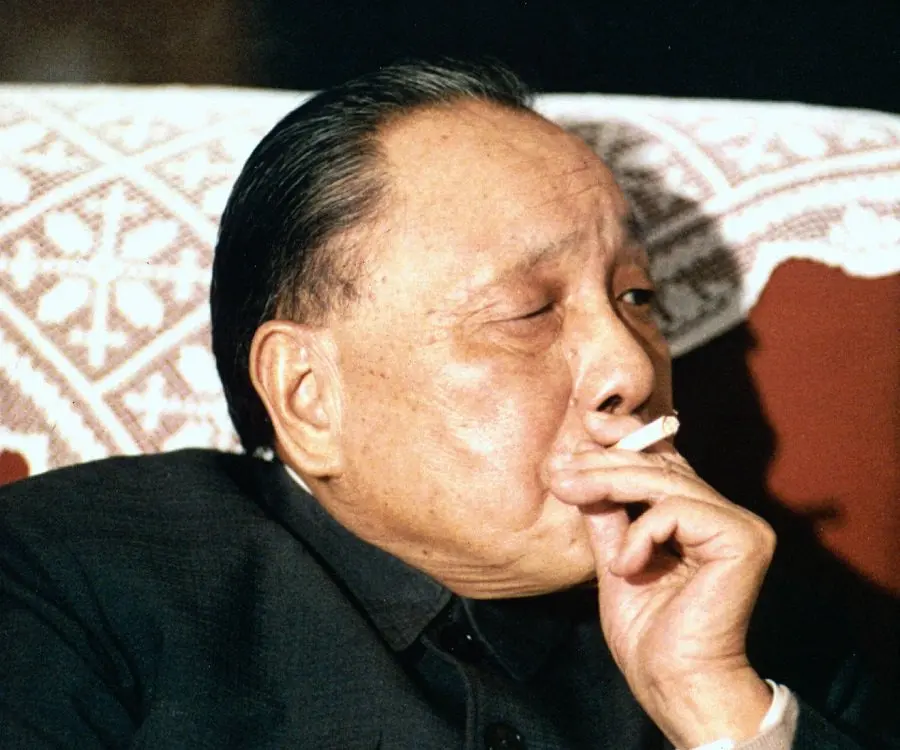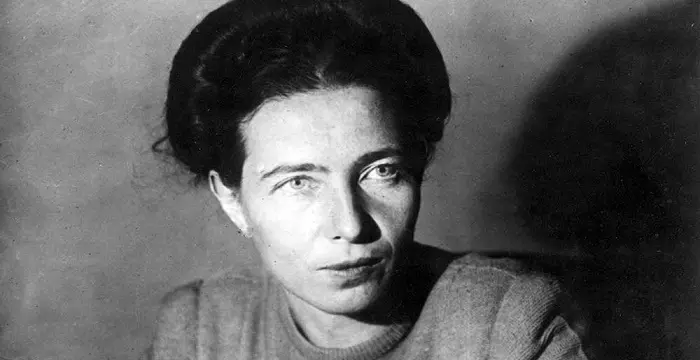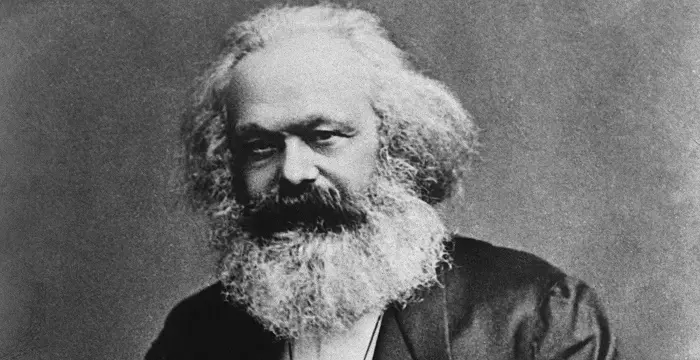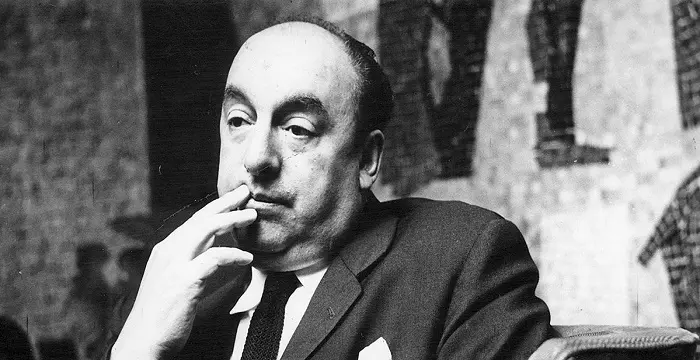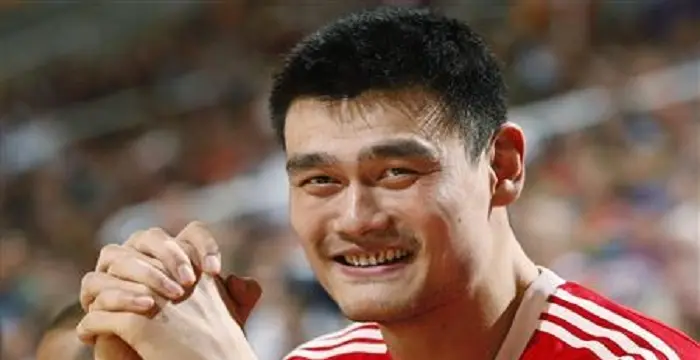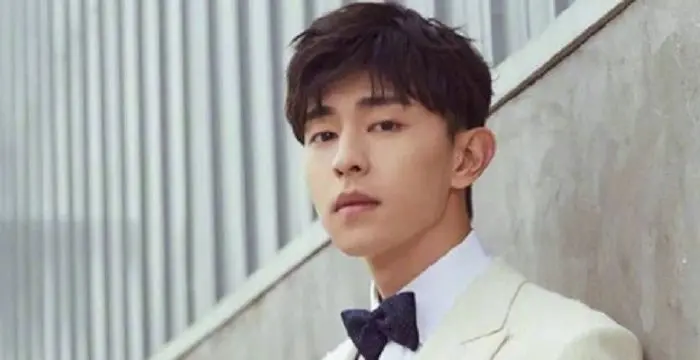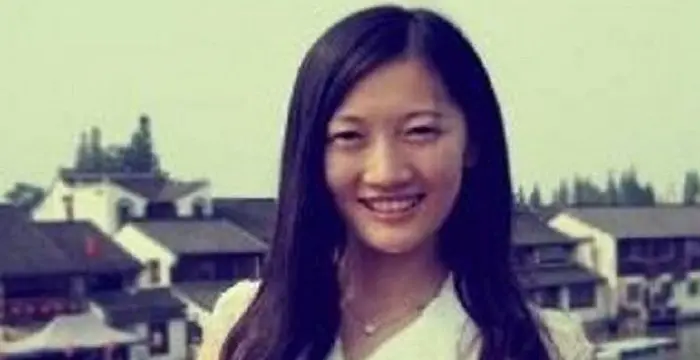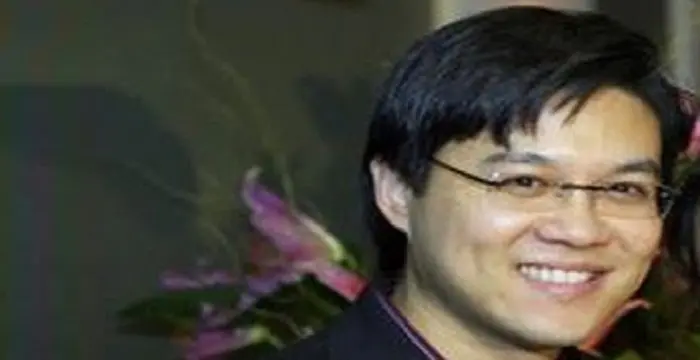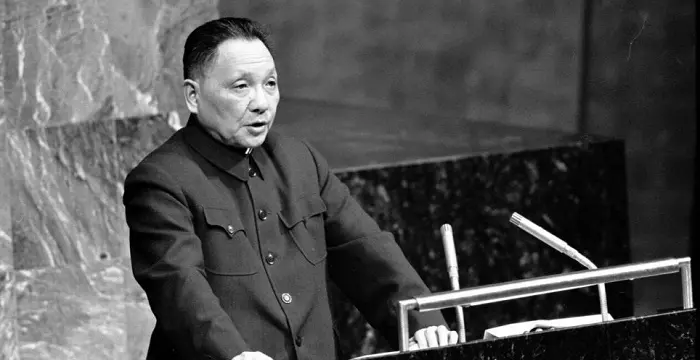
Deng Xiaoping - Communists, Facts and Family
Deng Xiaoping's Personal Details
Deng Xiaoping was the paramount leader of People’s Republic of China
| Information | Detail |
|---|---|
| Birthday | August 22, 1904 |
| Died on | February 19, 1997 |
| Nationality | Chinese |
| Famous | Communists, Philosophers, Leaders |
| Ideologies | Communists |
| Spouses | Jin Weiying (1931–1939), Zhang Xiyuan (1928–1929), Zhuo Lin (1939–1997) |
| Childrens | Deng Lin, Deng Nan, Deng Pufang, Deng Rong, Deng Zhifang |
| Birth Place | Guang'an, Sichuan |
| Political Ideology | Communist Party of China |
| Gender | Male |
| Father | Deng Wenming |
| Sun Sign | Leo |
| Born in | Guang'an, Sichuan |
| Died at Age | 92 |
// Famous Leaders
Edi Rama
Edi Rama is the current Prime Minister of Albania. Check out this biography to know about his childhood, life, achievements, works & timeline.
Tecumseh
Tecumseh was a Native American leader of the Shawnee clan. This biography profiles his childhood, life and timeline.
Khalifa bin Zayed Al Nahyan
Sheikh Khalifa bin Zayed Al Nahyan is the current President of the United Arab Emirates (UAE). Check out this biography to know about his birthday, childhood, family life, achievements and fun facts about him.
Deng Xiaoping's photo
Who is Deng Xiaoping?
Remembered as the Paramount Leader of People’s Republic of China, Deng Xiaoping was a prominent politician and reformist who led the country to domestic stability and economic growth after the disastrous excesses of the Cultural Revolution. Though he never acquired office as the head of state, head of government or General Secretary of the Communist Party of China, he nevertheless exerted extreme influence and guidance. During his rule which stretched from 1978 until 1992, he brought about many significant changes. It was under his leadership that the country progressed socially, economically and culturally. Under his leadership, he raised the standard of living of people and expanded their cultural and personal freedom. He dominated the department of foreign ministry and expanded ties of China with the Western countries. By far, he is credited with developing China into one of the fastest growing economies in the world for over 30 years and raising the standard of living of hundreds of millions of Chinese. However, it may be interesting to note that this prolific politician, leader and reformist had a humble beginning too. To know more about his life and profile, read on.
// Famous Philosophers
Martin Buber
One of the greatest philosophers to have ever walked on earth, Martin Buber contributions to philosophy is a long-standing one. Explore all about his profile, childhood, life and timeline here.
Lao Tzu (Laozi)
Lao Tzu was a legendary Chinese philosopher who wrote the important “Daodejing”. This biography profiles his childhood, life, career, achievements and timeline.
Alan Watts
Alan Watts was a famous British philosopher known for his Zen teachings and interpretations of Eastern philosophy. Read more about this great philosopher in the following article.
Childhood & Early Life
Deng Xiaoping was born in a Hakka Han family to Deng Wenming and Dan. He had six siblings. His father was a middle class landowner, while his mother passed away when he was very young.
Academically, he graduated from Chongqing Preparatory School in 1919. Thereafter, he along with 80 other fellow students participated in the Mouvement Travail-Etudes, which was a work-study program in France.
In France, he studied little and primarily focused on work. He took up various odd jobs during his stay, and apprenticed himself to be a skilled fitter.
A chance meeting with Zhou Enlai changed the course of his life as he started taking interest in Marxism and began to show interest in political work. In 1920, he joined the Chinese Communist Youth League in Europe.
By 1924, he joined the Chinese Communist Party and became one of the crucial members of the General Branch of the Youth League. Two years later, he moved to Soviet Union to enrol himself at the Moscow Sun Yat-sen University.
Career
Upon returning to China in 1927, he joined the army of Feng Yuxiang and unsuccessfully attempted to prevent the split between the nationalists and communists. The eventual divide and changeover in the ideology of Yuxiang resulted in him fleeing first to Wuhan.
At Wuhan, he became one of the leading and most prominent politicians. He then moved to Shanghai where he stayed until 1929. He was in charge of organizing protests, which caused severe causalities in the Communist group. A decreasing number in the group helped him rise up the ranks.
He was soon absorbed under the leadership of Mao Zedong, a Communist leader, who had a profound influence on him. He rose up the ranks to become the party director of the propaganda department.
Mao Zedong established a semblance of communist rule in Jiangxi province and renamed it Jiangxi Soviet. It had its own stamp and paper money under the name, Soviet Republic of China.
Republic of China attacked the Jiangxi Soviet in 1934 which resulted in the Long March from Jiangxi through the interiors of China to a new base in northwestern China.
To amend ties with the Kuomintang, Deng moved to Chongquing to offer negotiations between the nationalists and the communist but in vain. While Chiang Kai-shek established his government in Nanjing, Deng strengthened his base in rural area and steadily increased the Communist territory.
The Communist party, under Mao’s guidance and Deng’s governance defeated Chiang Kek-Shek to establish the People’s Republic of China.
He was appointed as the first secretary of the Department of Southwest on October 1, 1949. His profile included managing the final takeover of the parts of the country which were still ruled by the Kuomintang regime.
Slowly and steadily, he won over major Kuomintang dominated areas including Chongqing and Chengdu. After the acquisition, he took on the role of a Mayor of Chongqing. Additionally, he served as the leader of the Communist Party in the southwest.
In 1952, he relocated to Beijing, where he took up various positions in the central government. In four years, he became Secretary General of the CPC Central Committee, Head of the Organization Department and Vice Chairman of the Central Military Commission.
Year 1957 saw his appointment as the Secretary General of the Secretariat. His total support for the Communist wing somewhat dwindled after the economic failure in the Great Leap Forward.
Though he supported Mao in mass campaigns, the economic management of Mao seemed questionable. As such, he was thought of as the ideological figurehead and retained his position as the leader of the party and army, giving the presidency to Liu Shaoqi.
Along with Shaoqi, he made major political, foreign, economic and domestic policies that did not go very well with Mao’s egalitarian policies as they stressed on individual self-interest. He stressed on using material incentives and formation of skilled technical and managerial elites for economic development.
The drift from the arch-typical leftist sentiments towards somewhat rightist policies resulted in a clash between him and Mao who ordered the exit of him and Shaoqi from Communist party and labelled the two as right-wing capitalist. He was attacked during the Cultural Revolution and stripped off his governmental post.
After a couple of years of hiatus, he was became vice-chairman of the party’s Central Committee in 1975. However, he was soon dropped and regained the position only in 1977. Meanwhile, Mao had died in 1976 and his position had been filled up by Hua Guofeng.
Deng mobilized his supporters within the party, and outmaneuvered Hua Guofeng from top leadership positions by 1980. Zhao Ziyang became premier of the government, and Hu Yaobang became party chief while Deng assumed the position of “paramount leader” of the communist party. At this powerful position, he brought about several reforms pertaining to political, cultural, social and economic development.
All his reforms stressed on individual responsibility and material incentive. He urged the formation of skilled labor and technicians who helped hasten China’s growth and development.
He decentralized several industries and small scale works to achieve efficient economic growth. Farmers were given individual control to production and profit, a move that brought about a significant increase in the production.
In terms of foreign policies, he strengthened the country’s trade and cultural ties with the West and opened up Chinese enterprises to foreign investment.
His era of dominance ended when he stepped down from CCP’s Central Committee. Furthermore, he also gave up his seat on the Political Bureau and its dominant Standing Committee. He withdrew himself from the political scene in 1992.
Personal Life & Legacy
He married thrice in his lifetime. The first was to Zhang Xiyuan. She died in labor while giving birth to their first child who died as well. He married Jin Weiying who abandoned him in 1933. He married Zhuo Lin in 1939. Together they had five children.
He breathed his last on February 19, 1997, after suffering from lung infection and Parkinson’s disease. His organs were donated for medical research.
Several memorials and statues were constructed to commemorate and honor the offerings of him during his political pursuits.
Trivia
He never held office as the head of state, head of government or General Secretary of the Communist Party of China but is still regarded as the Paramount Leader who helped China progress socially, economically and culturally.
// Famous Communists
Simone de Beauvoir
Simone de Beauvoir was an eminent French writer, intellectual, activist, and philosopher. This biography profiles her childhood, life, thoughts, achievements and timeline.
Karl Marx
Karl Marx was a Prussian-German philosopher, revolutionary, historian and socialist whose communist ideologies and works laid the foundation for ‘Marxism’. Explore this biography to learn more about his childhood, life achievements, works & timeline.
Pablo Neruda
Pablo Neruda was a Chilean poet, politician and Nobel laureate. Go through this biography to learn more about his profile, childhood, life and timeline.
Deng Xiaoping biography timelines
- // 22nd Aug 1904Deng Xiaoping was born in a Hakka Han family to Deng Wenming and Dan. He had six siblings. His father was a middle class landowner, while his mother passed away when he was very young.
- // 1919Academically, he graduated from Chongqing Preparatory School in 1919. Thereafter, he along with 80 other fellow students participated in the Mouvement Travail-Etudes, which was a work-study program in France.
- // 1920A chance meeting with Zhou Enlai changed the course of his life as he started taking interest in Marxism and began to show interest in political work. In 1920, he joined the Chinese Communist Youth League in Europe.
- // 1924By 1924, he joined the Chinese Communist Party and became one of the crucial members of the General Branch of the Youth League. Two years later, he moved to Soviet Union to enrol himself at the Moscow Sun Yat-sen University.
- // 1927Upon returning to China in 1927, he joined the army of Feng Yuxiang and unsuccessfully attempted to prevent the split between the nationalists and communists. The eventual divide and changeover in the ideology of Yuxiang resulted in him fleeing first to Wuhan.
- // 1929At Wuhan, he became one of the leading and most prominent politicians. He then moved to Shanghai where he stayed until 1929. He was in charge of organizing protests, which caused severe causalities in the Communist group. A decreasing number in the group helped him rise up the ranks.
- // 1934Republic of China attacked the Jiangxi Soviet in 1934 which resulted in the Long March from Jiangxi through the interiors of China to a new base in northwestern China.
- // 1949He was appointed as the first secretary of the Department of Southwest on October 1, 1949. His profile included managing the final takeover of the parts of the country which were still ruled by the Kuomintang regime.
- // 1952In 1952, he relocated to Beijing, where he took up various positions in the central government. In four years, he became Secretary General of the CPC Central Committee, Head of the Organization Department and Vice Chairman of the Central Military Commission.
- // 1957Year 1957 saw his appointment as the Secretary General of the Secretariat. His total support for the Communist wing somewhat dwindled after the economic failure in the Great Leap Forward.
- // 1975After a couple of years of hiatus, he was became vice-chairman of the party’s Central Committee in 1975. However, he was soon dropped and regained the position only in 1977. Meanwhile, Mao had died in 1976 and his position had been filled up by Hua Guofeng.
- // 1980Deng mobilized his supporters within the party, and outmaneuvered Hua Guofeng from top leadership positions by 1980. Zhao Ziyang became premier of the government, and Hu Yaobang became party chief while Deng assumed the position of “paramount leader” of the communist party. At this powerful position, he brought about several reforms pertaining to political, cultural, social and economic development.
- // 1992His era of dominance ended when he stepped down from CCP’s Central Committee. Furthermore, he also gave up his seat on the Political Bureau and its dominant Standing Committee. He withdrew himself from the political scene in 1992.
- // 19th Feb 1997He breathed his last on February 19, 1997, after suffering from lung infection and Parkinson’s disease. His organs were donated for medical research.
// Famous Chinese peoples
Yao Ming
Yao Ming is a retired Chinese basketball player who played for Chinese Basketball Association (CBA). Check out this biography to know about his childhood, family life, achievements and fun facts about him.
Deng Lun
Deng Lun is a Chinese actor best known for his performance in the TV series 'White Deer Plain'. Check out this biography to know about his birthday, childhood, family life, achievements and fun facts about him
Xi Mingze
Xi Mingze is the daughter of Chinese Leader Xi Jinping, Check out this biography to know about her birthday, childhood, family life, achievements and fun facts about her.
Dylan Wang
Dylan Wang is a Chinese actor and model. Check out this biography to know about his childhood, family, personal life, career, etc.
Lao Tzu (Laozi)
Lao Tzu was a legendary Chinese philosopher who wrote the important “Daodejing”. This biography profiles his childhood, life, career, achievements and timeline.
Robert Charles Chien
Robert Charles Chien is an entrepreneur who is married to actress Lea Salonga. Check out this biography to know about his birthday, childhood, family life, achievements and fun facts about him.
Deng Xiaoping's FAQ
What is Deng Xiaoping birthday?
Deng Xiaoping was born at 1904-08-22
When was Deng Xiaoping died?
Deng Xiaoping was died at 1997-02-19
Where was Deng Xiaoping died?
Deng Xiaoping was died in Beijing
Which age was Deng Xiaoping died?
Deng Xiaoping was died at age 92
Where is Deng Xiaoping's birth place?
Deng Xiaoping was born in Guang'an, Sichuan
What is Deng Xiaoping nationalities?
Deng Xiaoping's nationalities is Chinese
What is Deng Xiaoping ideologies?
Deng Xiaoping's ideologies is Communists
Who is Deng Xiaoping spouses?
Deng Xiaoping's spouses is Jin Weiying (1931–1939), Zhang Xiyuan (1928–1929), Zhuo Lin (1939–1997)
Who is Deng Xiaoping childrens?
Deng Xiaoping's childrens is Deng Lin, Deng Nan, Deng Pufang, Deng Rong, Deng Zhifang
What is Deng Xiaoping's political ideology?
Deng Xiaoping's political ideology is Communist Party of China
Who is Deng Xiaoping's father?
Deng Xiaoping's father is Deng Wenming
What is Deng Xiaoping's sun sign?
Deng Xiaoping is Leo



